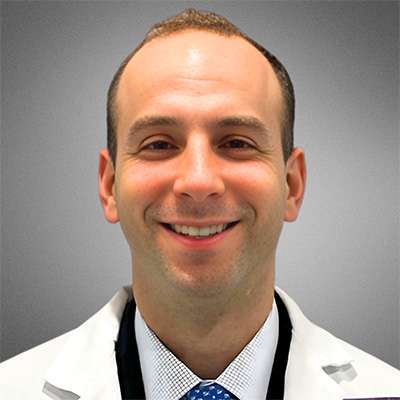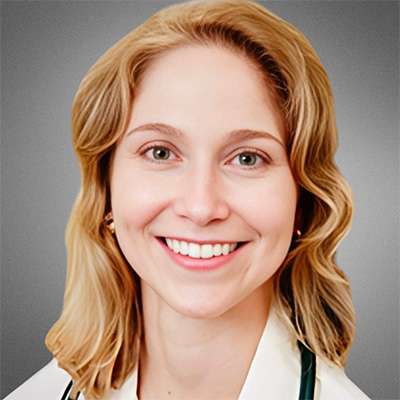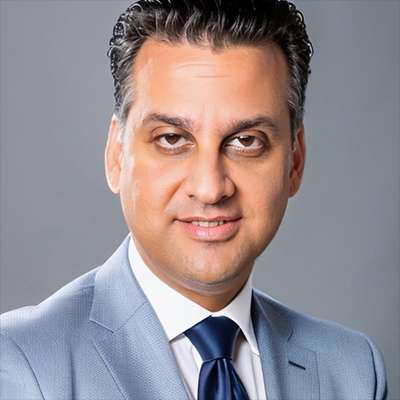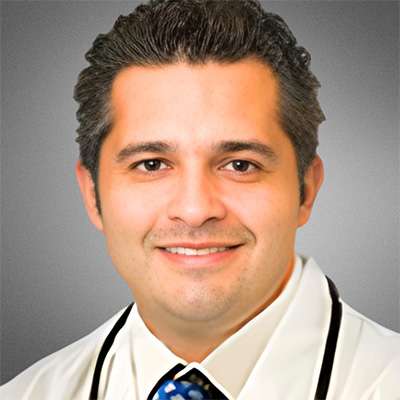Gastroesophageal reflux disease (GERD) occurs when acidic juices from your stomach splash back into your esophagus (“acid reflux”), irritating the esophageal lining. Heartburn is another name for this burning sensation. For an accurate diagnosis and to rule out other causes, persistent GERD symptoms or new onset of acid reflux symptoms should always be evaluated with a thorough consultation and examination by a heartburn doctor. Persistent heartburn symptoms can progress to Barrett’s esophagus, which is a precursor to esophageal cancer. This condition is commonly evaluated and treated by our gastroenterologists at our offices.
”
★ ★ ★ ★ ★I came in for a consultation for an issue I’ve been having with my stomach for about two months. Dr. Yakubov was very kind, informative and made me feel at ease about my current situation. He took his time to explain to me what the issue could be and answered all of my questions and concerns. The office is very beautiful and clean as well.
What Is GERD?
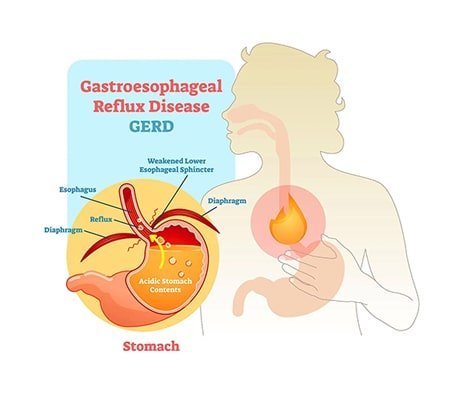
Gastroesophageal reflux disease (GERD) is a digestive dysfunction affecting the lower esophageal sphincter (LES), a bundle of muscles between the stomach and the esophagus. Many people have heartburn or acid indigestion as a result of GERD. The tube that connects your mouth to your stomach is known as the esophagus. It has two sphincters, one at the top of your throat and one near your stomach.
Typically, the lower esophageal sphincter (or LES) maintains a strong grip, allowing the one-way flow of food into your stomach. However, if the LES weakens or doesn’t close properly, the digestive enzymes and acid in your stomach can escape back up into your esophagus.
Many people experience acid reflux symptoms after eating certain foods. In these instances, over-the-counter drugs may be effective in temporarily alleviating GERD symptoms such as a burning throat. Your acid reflux doctor in NYC can help diagnose the condition and place you on the correct medication or prescribe lifestyle modifications as needed.
Explore Further: The Worst Foods for Heartburn
What Are the Symptoms of Acid Reflux?
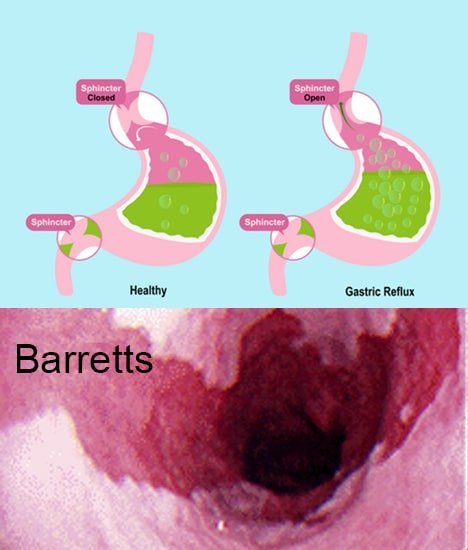
Heartburn and acid regurgitation are common acid reflux symptoms. Heartburn begins with a burning sensation in the chest. It can occasionally rise into your throat, producing a sour taste and a burning sensation. When you experience this symptom, it’s called acid regurgitation.
Other GERD symptoms include unexplained chest pain, shortness of breath, and radiating arm pain. These can be signs of a heart problem, and you should seek immediate medical attention and call 911. More worrisome symptoms include difficulty swallowing, unexplained weight loss, blood in the stool, and others, which the heartburn specialist should immediately evaluate.
A thorough consultation and examination by a physician should be performed to establish an accurate diagnosis and develop an acid reflux treatment plan, as well as to rule out any other conditions. Chronic GERD symptoms can lead to Barrett’s esophagus, which is a precursor to esophageal cancer and can be diagnosed with an upper endoscopy.
What Causes Acid Reflux and the symptoms of Heartburn?
Gastroesophageal reflux disease occurs when the muscle between your stomach and esophagus (the LES) weakens. There are many causes of acid reflux.
Most of them are lifestyle-related and include obesity, pregnancy, diabetes, cigarette smoking, asthma, alcohol abuse, and consuming certain foods and beverages such as:
- Carbonated beverages;
- Chocolate;
- Citrus drinks, including juices;
- Coffee;
- Fatty foods;
- Peppermint;
- Tomato-based products.
A hiatal hernia, which allows parts of your stomach to move past your diaphragm into your chest, is another possible cause. Although not everyone with a hiatal hernia will experience GERD symptoms, the hernia increases the likelihood of the disease. Heartburn is a GERD symptom caused by acid refluxing back into the esophagus.
Read more: 3 Conditions with the Same Symptoms as Heartburn
How Is GERD Diagnosed?
An upper endoscopy allows your gastroenterologist to visually assess any damage to your esophageal lining. If necessary, they can take a tissue biopsy for further testing. Based on your consultation, acid reflux specialist will decide whether this test will be included in the workup and whether further tests may be required for the specialists to establish an accurate GERD diagnosis.
During the endoscopy, our top GERD doctors use an endoscope, a small tube with a light at the end, to examine your esophagus and stomach, as well as the upper portion of your small intestine, called the duodenum. pH testing can also be a valuable part of the workup. pH testing allows for us to measure the amount of acid in your esophagus. Our physician can perform this test by either attaching a small sensor to your esophagus during an endoscopy or placing a thin, flexible probe into your esophagus. The probe or sensor delivers data to a small device that you carry on your belt and can provide useful information.
Finding an Acid Reflux Doctor Near Me
If you’re dealing with acid reflux and symptoms like constant heartburn, trouble swallowing, or a chronic cough, see a gastroenterologist who knows how to help. They can figure out what’s causing your discomfort and offer the right treatments, from simple fixes to more advanced options if needed.
How to Find an Acid Reflux Doctor in Your Area
If you’re seeking a GERD doctor nearby, here are a few tips:
- Reach out to friends and family for recommendations.
- Your PCP may refer you to a specialist if needed.
- Websites like Healthgrades, Zocdoc, and US News Health can help you find gastroenterologists specializing in acid reflux.
- Search online for “gerd doctor near me,” “acid reflux specialist near me,” or “gerd specialist near me.”
- Reach out to local hospitals and medical centers to get recommendations.
- Check with your insurance provider for a list of in-network gastroenterologists.
- Read reviews of local doctors online and schedule consultations to get to know more about them.
- For acid reflux, your doctor should be board-certified in Gastroenterology.
How to Treat GERD?
Acid reflux symptoms can sometimes go away on their own if certain dietary or lifestyle excesses are reduced or eliminated.
Aside from avoiding the foods and beverages indicated above, you can alleviate your heartburn symptoms by following these tips:
- Avoid eating within three hours of bedtime;
- Maintain a healthy weight;
- Prop up the head of your bed four to six inches;
- Quit cigarette smoking.
We recommend that you schedule an appointment with our GERD specialist in NYC to evaluate and examine your symptoms and receive an accurate diagnosis. Our NYC heartburn doctor will determine whether further testing is required and if you should be screened for Barrett’s esophagus.
Over-the-counter drugs reduce stomach acid production and are safe and effective for treating mild cases. Other medications known as proton pump inhibitors are also effective for treating your GERD symptoms while also helping your body heal. These drugs prevent particular acids from being produced in your stomach. Medication management should be guided by your gastroenterologist’s advice. In some cases, advanced endoscopic procedures or surgery are necessary.
If gastroesophageal reflux disease specialists recommend surgery, a procedure known as fundoplication is an option This procedure wraps part of your stomach around the lower end of your esophagus to strengthen the barrier between your esophagus and stomach. Other surgical and endoscopic options are also available for difficult-to-treat patients, and we can discuss them during your consultation.
Learn More: Six Signs Your Heartburn Could Be Something More Serious
Frequently Asked Questions
What Are GERD Risk Factors?
You are at a higher risk of getting exposed to this medical condition if you:
- Are pregnant
- Have a connective tissue disorder
- Are obese
- Have a hiatal hernia
The disease can worsen if you:
- Eat large meals
- Drink alcohol
- Take NSAIDs
- Eat right before going to bed
- Drink a lot of coffee
- Smoke
Are There Any Complications of Gastroesophageal Reflux Disease?
In the long run, chronic inflammation in your esophagus can lead to the following GERD complications:
- Precancerous changes to the esophagus. Acid damage can lead to abnormalities in the tissue lining the lower esophagus. These changes may raise the risk of esophageal cancer.
- An open sore in the esophageal ulcer. Stomach acid can wear away the tissue in the esophagus, resulting in an open sore. An esophageal ulcer can bleed, causing severe pain.
- Narrowing of the esophageal stricture. Scar tissue develops when stomach acid damages the lower esophagus.
How To Prevent Acid Reflux and Heartburn?
GERD prevention should start with the implementation of several lifestyle changes, including:
- Avoid lying down after a meal. You should wait at least three hours after a meal before going to bed or lying down.
- Stop smoking. If you smoke, your lower esophageal sphincter’s ability to function correctly can decrease.
- Keep a healthy weight. Excess weight strains your abdomen, forcing your stomach up and causing acid reflux into your esophagus.
- Chew thoroughly and consume food slowly. As an option, you can put down your fork every time you take a bite and pick it up again only if you have chewed and swallowed that bite.
- Stay away from foods that trigger reflux. Common triggers are tomato sauce, alcohol, chocolate, garlic, onion, caffeine, and fried foods.
- Do not wear tight-fitting clothes. Tight clothing around your waist puts undue strain on your lower esophageal sphincter and abdomen.
What Medications Are Over The Counter? Do You Need Prescriptions?
Important Reminder: The only intent of this information is to provide guidance, not definitive medical advice. Please consult a NYC heartburn doctor about your specific condition. Only trained, experienced gastroenterologists can determine an accurate diagnosis and proper heartburn treatment.
As the best-in-class NYC gastroenterologists, we provide highly personalized and comprehensive care. For more information about the GI conditions we treat, including Heartburn / GERD Treatment, or to schedule a consultation with one of our acid reflux specialists in NYC like Dr. Khodadadian, MD, please contact our Union Square/Chelsea, Midtown, or Upper East Side offices.





